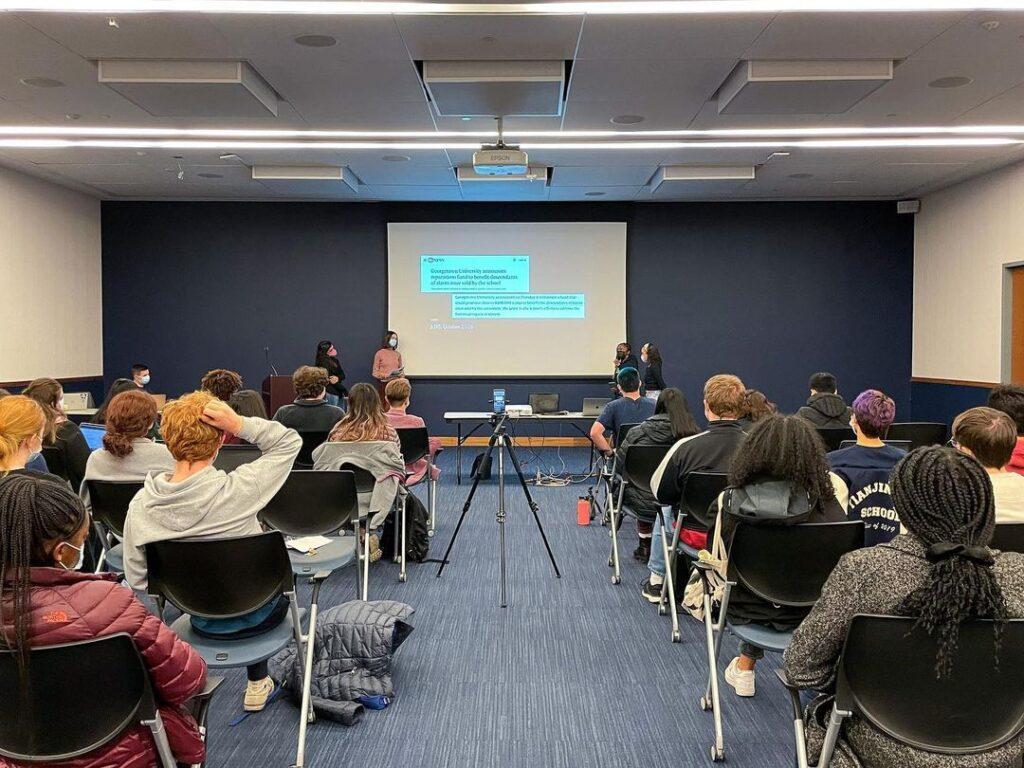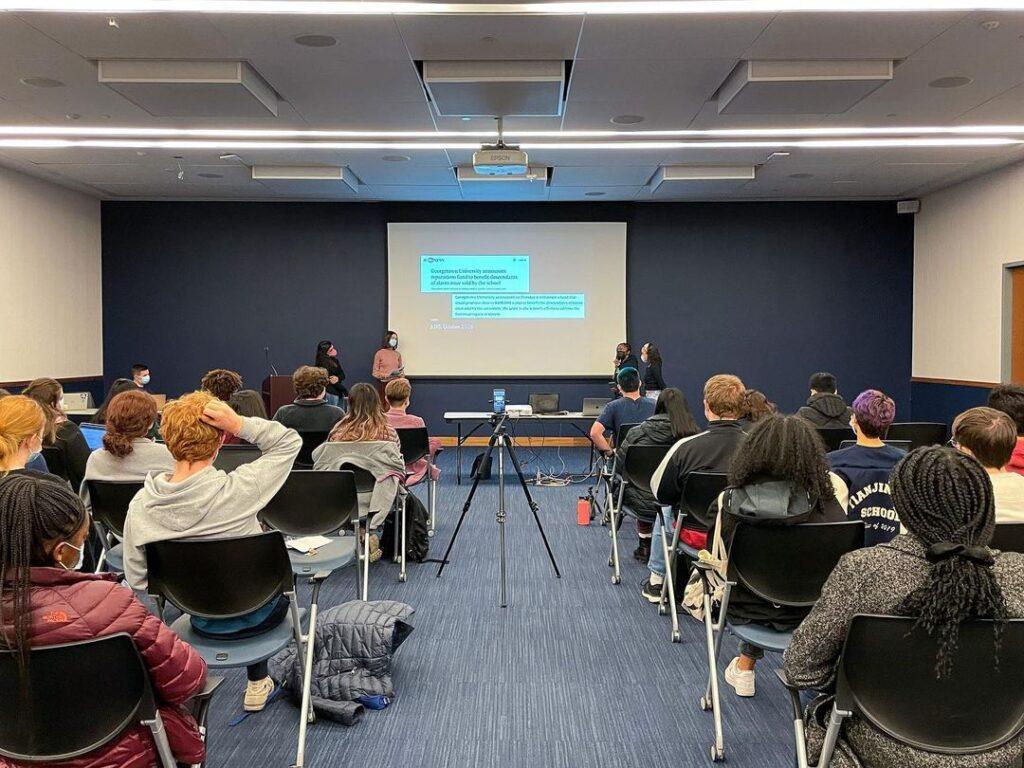At an event titled “Georgetown F*cking Lied,” the Georgetown University Student Association’s (GUSA) GU272 advocacy team demanded Georgetown pay reparations to descendants of enslaved people sold by the university.
The Dec. 1 discussion came two years after students voted in favor of a GUSA referendum to establish a semesterly fee for undergraduate students of $27.20 to create a reconciliation fund to be allocated to descendants of the GU272, the 314 enslaved people sold by the Maryland Province of the Society of Jesus in 1838 to financially sustain the university. However, Georgetown University did not enact the fee and instead announced in 2019 its intentions to establish a $400,000 reconciliation fund. GUSA hosted the event to keep the memory of GU272 and the 2019 referendum alive among the student body, according to GUSA Chief of Staff Genevieve Grenier (MSB ’24).

Georgetown must provide reparations, according to descendant Julia Thomas (COL ’24), who helped lead the discussion at the event which was attended by over 160 people in person and via live stream.
“It’s time for Georgetown to atone for their past actions to fulfill their promises and honor the lives of the people they enslaved,” Thomas said at the event.
Thomas, who has not received any reparations from the university, said only Georgetown has benefited from their commitment to a reconciliation fund.
“In reality, to this day, they’ve given $0.00 to this fund. The only group that has gotten anything from this fund is Georgetown with the good publicity that they’ve gotten,” Thomas said.
The university’s proposed fund was not an acceptable solution and descendants have yet to receive any funding from the university, according to a petition GUSA introduced at the event.
“This decision was met with frustrations from members of the campus community who opposed charity as a means to achieve justice, voicing support for reparative justice instead,” the petition reads. “Since then, the university has failed to deliver on any of their pledges to provide support to GU272 descendants, going even so far as to erase mentions of these promises.”
However, statements made by the university regarding slavery and reparations are available for public view, and the university plans to enact compensation plans in the coming semester, according to a university spokesperson.
“Year one (AY 21-22) funds have been set aside for a spring 2022 launch of the grant review committee and grant application process,” a university spokesperson wrote in an email to The Hoya. “Planning for a spring fundraising campaign is also underway.”
Student commitment to GU272 reparations remains strong, according to Grenier.
“What the university is doing currently is they’re hoping that all of us in this room and all of us on this campus are just going to be quiet, go away, move on, forget about it,” Grenier said at the event. “That’s not the case. We’re here. Today, we’re calling them out.”
In 2019 student activists protested at a meeting of Georgetown Board of Directors over their decision to not implement the referendum reconciliation fund. Furthermore, descendants of the GU272 have honored their own history, including Mélisande Short-Colomb, who performed an autobiographical play entitled “Here I Am,” a personal integration of the university’s sale of the enslaved people.
Additionally, there have been many forms of activism in support of descendants including a song written by Carlos Simon, an assistant professor of music at Georgetown University, which honored the enslaved people sold. He performed his work at the Library of Congress last month.
According to Thomas, students’ rich history of activism — especially work from descendants, as well as GUSA President Nile Blass (COL ’22) — has been key to the GU272 movement.
“My brother and Nile and other students have worked for such a long time and here I am fighting for the same exact fight,” Thomas said.
According to Blass, even with a rich history of activism, the COVID-19 pandemic has made it difficult for activists to continue pressuring the university and has erased institutional memory of the referendum.
“By virtue of COVID-19, I think it’s very hard to maintain a lot of the organizing and activism,” Blass said at the event. “A lot of the activism that we were able to do, including consistent pressure on the university, has worked. Promises to continually update and at least attempt to assure the student body that they would be doing something meaningful happened because we occupied physical space.”
Moving forward, efforts will concentrate on rekindling interest in the issue of reparations for the GU272 through providing information to the student body, according to Blass.
“I think a lot of what made initial activism efforts effective was because we have a student body outside of those who are expected to care who might feel that because of their identity, they do care, they have to care,” Blass said.















